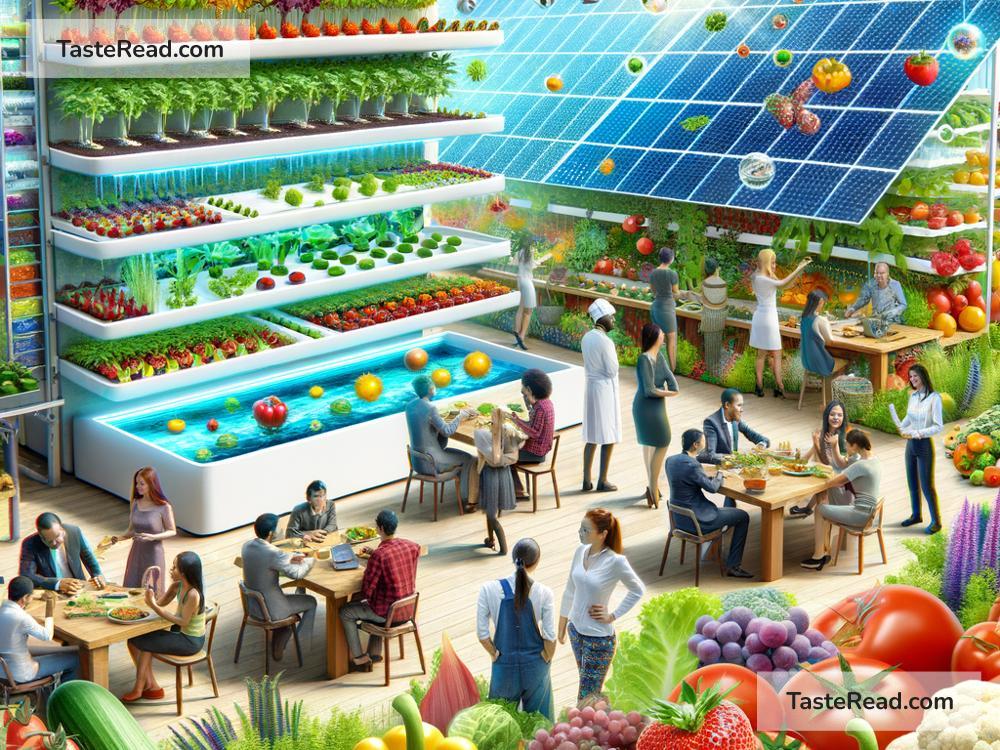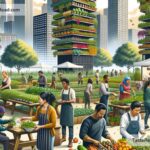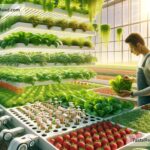The Future of Food and Regenerative Cultural Practices: A Path Forward
We all know how important food is for life. It nourishes us, brings people together, and shapes cultures all over the world. But the way we grow, process, and eat food is changing as new challenges arise, like climate change, soil depletion, and health issues. While these problems might seem overwhelming, exciting solutions are taking shape. The future of food isn’t just about filling our plates—it’s about rethinking how food connects to the planet, communities, and traditions through regenerative cultural practices.
What Are Regenerative Cultural Practices?
Regenerative cultural practices are ways of living and working that restore and improve our connection with nature, while building stronger communities. These practices focus on renewing resources, rather than consuming them until they disappear. In agriculture, for example, regenerative farming methods improve soil health, increase biodiversity, and reduce pollution—all while helping farmers grow food that nourishes us better.
Regenerative practices don’t stop at farming; they extend into how we share food, preserve cultural traditions, and support each other as communities. The goal is simple: to create systems that work in harmony with nature, rather than against it.
Challenges in Food Systems Today
Many of the food systems we rely on today are harmful to the planet. Industrial farming often focuses on short-term profits rather than long-term sustainability. Chemical fertilizers and pesticides damage soil health and pollute water sources. Practices like over-farming and monoculture (planting just one type of crop) lead to soil degradation, making land less productive over time.
On top of this, global food systems also contribute significantly to environmental issues like deforestation, greenhouse gas emissions, and loss of biodiversity. For example, clearing forests to grow palm oil or raise cattle reduces habitats for wildlife and releases carbon dioxide into the atmosphere.
At the same time, people are losing their connection to cultural food traditions. Processed foods often replace recipes and ingredients that have sustained communities for centuries. As we eat more fast food, we may forget the valuable lessons our ancestors taught about working with nature and sharing food as an act of care and celebration.
Imagining the Future of Food
The future of food will require big changes—and regenerative cultural practices are a key part of the solution. Scientists, farmers, chefs, and everyday people are working together to imagine and create better food systems. Here are some ideas shaping the future:
-
Regenerative Agriculture: Techniques like crop rotation, cover cropping, and agroforestry can restore soil health and increase biodiversity. These farming practices mimic natural ecosystems, helping the land heal and stay productive for future generations. For example, some farmers are planting trees alongside crops to hold soil in place, capture carbon, and provide shelter for animals.
-
Local Food Systems: Smaller, community-based food systems are becoming more popular. Buying locally-grown food reduces transportation emissions and supports small farmers. Farmers’ markets, community-supported agriculture (CSA) programs, and urban gardens are all ways people can reconnect with where their food comes from.
-
Food Innovations: Science is also playing a big role in the future of food. Lab-grown meat, dairy alternatives, and insect-based protein are being developed to reduce the environmental impact of animal agriculture. While these ideas might sound futuristic, they could soon become a normal part of our diets.
-
Honoring Traditional Food Practices: Reviving cultural food traditions is another key step in creating a sustainable food future. Indigenous communities all over the world have practiced regenerative farming for centuries, emphasizing a balance between human needs and nature. Learning from these traditions can help us rediscover respectful and sustainable ways of growing and eating food.
-
Reducing Food Waste: About one-third of the food produced globally is wasted. Better food storage, community kitchens, and food recovery programs can help ensure more food reaches people who need it, instead of ending up in landfills.
Shift in Mindset
As we look to the future of food, we must also change how we think about eating and farming. It’s not just about producing more—it’s about producing better: food that supports human health, respects cultural traditions, and works with the planet’s limits. We need to value the process, not just the product.
Part of this shift is about recognizing our role as caretakers of the Earth. Every choice we make—whether it’s buying locally grown vegetables or composting food scraps—has an impact. These small actions, combined with larger changes in food systems, can create a ripple effect that leads to big changes globally.
A Hopeful Path Forward
The challenges in food systems today may seem daunting, but they also offer opportunities. By working together to embrace regenerative cultural practices, we can build a future where food is nourishing for people and the planet. Imagine communities where farms are rich with biodiversity, people share meals rooted in tradition, and waste is a thing of the past.
The future of food isn’t just about growing crops—it’s about growing connections between nature, culture, and people. If we approach food with care and respect, the possibilities are endless. Let’s take steps, big and small, to support practices that regenerate the Earth, honor cultures, and bring people together. After all, food is not just about survival—it’s about thriving in harmony with the world around us.
With the future of food and regenerative practices in mind, we can dream of a healthier, more sustainable world for everyone. The journey ahead requires effort, but it also holds hope, innovation, and inspiration. 🥦🌍


